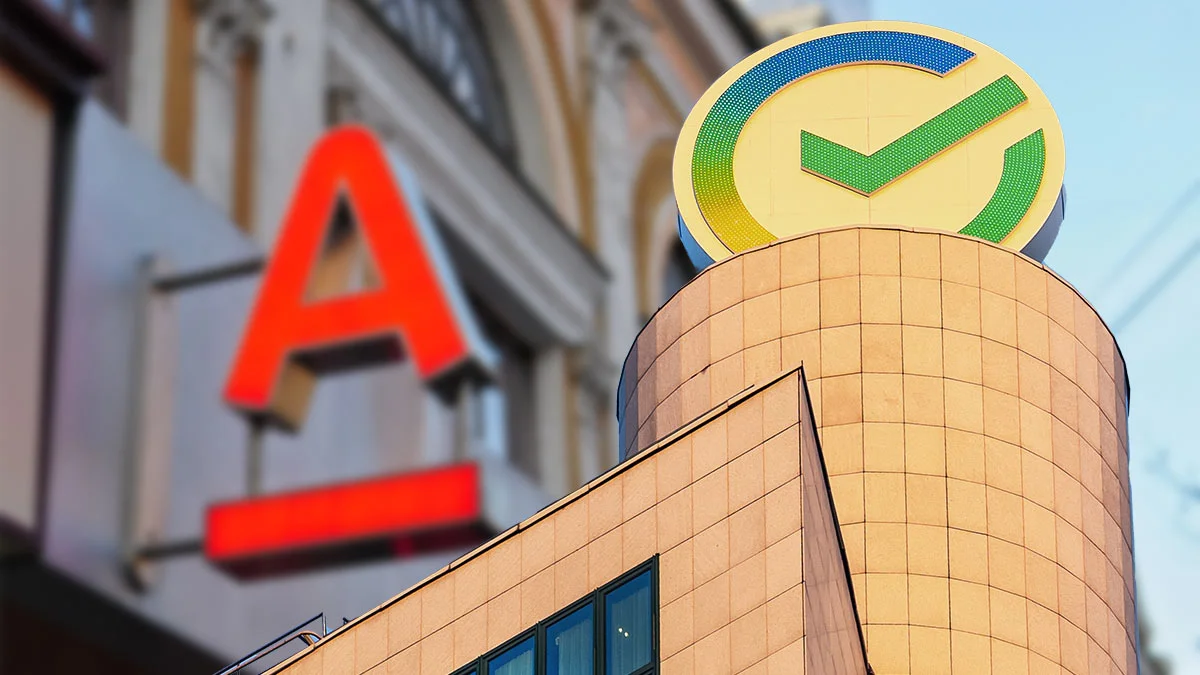Sberbank and Alfa-Bank clients will soon be removed from the App Store and Google Play. Why?

On April 6, another package of blocking (full) US sanctions began to operate, affecting banking organizations from the Russian Federation. The restrictions affected Sberbank and Alfa-Bank. What awaits the clients of these banks?
The essence of the sanctions
Sberbank, Alfa-Bank, VTB, Otkritie and several other financial institutions from the Russian Federation have been added to the black list (SDN) of the Office of Foreign Assets Control (OFAC) of the United States. As a result, legal entities and individuals from the United States are deprived of the opportunity to interact with institutions from this list. All assets of banks that have a connection with the US financial system are blocked.
OFAC gave banks the opportunity to complete all activities: Sberbank - until April 13, its American branch - until June 7, Alfa-Bank - until May 6.
Implications for clients
Visa and MC cards issued by banking organizations from the SDN list function as before only in Russia. Clients of Sberbank and Alfa involved in investments can no longer invest in foreign securities. Previously, in order to avoid losing this opportunity, VTB transferred the assets of clients to Alfa-Bank, and apparently they will have to start looking for a new partner.

Currency transfer also became difficult. So, Alfa-Bank suspended this service, since it does not guarantee its execution. Sberbank stopped sending foreign currency to accounts in the States and the UK.
What will happen to banking applications?
Sberbank and Alfa clients for Android and iOS devices are at risk of disappearing from app marketplaces. The thing is that Google and Apple are US companies that are subject to local law and therefore do not have the ability to provide services to companies under sanctions. The applications of VTB, Otkritie and other banks were removed from the sanctions list immediately after the banks were added to the SDN list.
Probably, Sberbank and Alfa-Bank will recommend downloading the installation APK file for Android directly from their own websites. Alfa also said that the removal of the application from the App Store was envisaged, but it is not clear what specific measures were taken. It is worth noting that even when downloading programs from the websites of organizations, there will be no guarantees for the stable operation of push notifications, since the latter go through the servers of the owners of the application stores.
The second option is to use web applications instead of mobile ones. VTB and Otkritie, which were the first to fall under the restrictions, provided users with this alternative method. Web applications function on both operating systems, but they also have their drawbacks.

What will happen to the Sber ecosystem?
The blocking package of sanctions applies to companies in which the sub-sanctioned organization has a share of more than 50%. In this regard, VTB cut its ownership stake in the subsidiary Post Bank.
Sber has a difficult situation, as it is actively working to promote its own ecosystem of services. On the one hand, the organization has a 45% stake in several service providers, including Delivery Club and Citymobil, and on the other hand, it has full control over the Rambler holding and SberZvuk, as well as 83% of SberHealth shares. At the moment, it is impossible to say unequivocally what fate awaits these services.
The essence of the sanctions
Sberbank, Alfa-Bank, VTB, Otkritie and several other financial institutions from the Russian Federation have been added to the black list (SDN) of the Office of Foreign Assets Control (OFAC) of the United States. As a result, legal entities and individuals from the United States are deprived of the opportunity to interact with institutions from this list. All assets of banks that have a connection with the US financial system are blocked.
OFAC gave banks the opportunity to complete all activities: Sberbank - until April 13, its American branch - until June 7, Alfa-Bank - until May 6.
Implications for clients
Visa and MC cards issued by banking organizations from the SDN list function as before only in Russia. Clients of Sberbank and Alfa involved in investments can no longer invest in foreign securities. Previously, in order to avoid losing this opportunity, VTB transferred the assets of clients to Alfa-Bank, and apparently they will have to start looking for a new partner.

Currency transfer also became difficult. So, Alfa-Bank suspended this service, since it does not guarantee its execution. Sberbank stopped sending foreign currency to accounts in the States and the UK.
What will happen to banking applications?
Sberbank and Alfa clients for Android and iOS devices are at risk of disappearing from app marketplaces. The thing is that Google and Apple are US companies that are subject to local law and therefore do not have the ability to provide services to companies under sanctions. The applications of VTB, Otkritie and other banks were removed from the sanctions list immediately after the banks were added to the SDN list.
Probably, Sberbank and Alfa-Bank will recommend downloading the installation APK file for Android directly from their own websites. Alfa also said that the removal of the application from the App Store was envisaged, but it is not clear what specific measures were taken. It is worth noting that even when downloading programs from the websites of organizations, there will be no guarantees for the stable operation of push notifications, since the latter go through the servers of the owners of the application stores.
The second option is to use web applications instead of mobile ones. VTB and Otkritie, which were the first to fall under the restrictions, provided users with this alternative method. Web applications function on both operating systems, but they also have their drawbacks.

What will happen to the Sber ecosystem?
The blocking package of sanctions applies to companies in which the sub-sanctioned organization has a share of more than 50%. In this regard, VTB cut its ownership stake in the subsidiary Post Bank.
Sber has a difficult situation, as it is actively working to promote its own ecosystem of services. On the one hand, the organization has a 45% stake in several service providers, including Delivery Club and Citymobil, and on the other hand, it has full control over the Rambler holding and SberZvuk, as well as 83% of SberHealth shares. At the moment, it is impossible to say unequivocally what fate awaits these services.





There are no comments yet :(